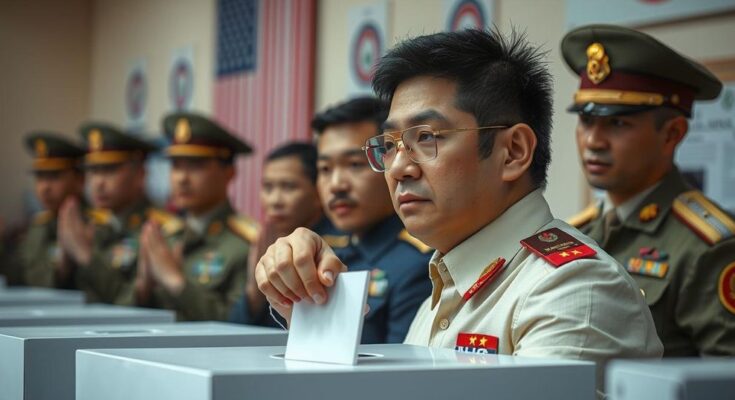Chad conducted a general election amid low turnout due to opposition boycotts, resulting in only 38% participation. President Deby called for voting, while opposition leaders claimed election outcomes were predetermined. The government sees the elections as key to a democratic transition. Issues include skepticism from citizens, allegations of fraud, and regional conflicts.
Chad held its general election on Sunday, marking a significant move towards ending three years of military governance, although turnout was notably low, partly due to a boycott by opposition parties. The elections aimed at forming a new parliament, provincial assemblies, and local councils saw only 38 percent participation, according to midday reports from the National Elections Authority (ANGE). Election officials attributed voter apathy to unfavorable weather.
Opposition leader Succes Masra of the Transformers party claimed that the majority of voters stayed home, asserting that the election was predetermined. The boycott largely benefits candidates affiliated with President Mahamat Idriss Deby Itno, who assumed power through military means in 2021 and was later elected in a controversial presidential election earlier this year, which opposition members criticized as fraudulent.
President Deby urged citizens on social media to vote, declaring the day historic. Some citizens expressed skepticism regarding the electoral process. For instance, Herve Natouingan, now a motorbike taxi driver, deemed voting pointless, citing the absence of genuine democratic practices in Chad. Others, like Patrice Lumumba Deoumoundou, expressed hope for substantial change, including economic improvement and social justice.
On the eve of the election, opposition parties reported irregularities, including the disappearance of ballots intended for Bongor, and called for vigilance against electoral fraud. Meanwhile, Chadian citizens also face challenges from ongoing jihadist attacks and political tensions related to regional conflicts.
Despite the controversies, the government characterizes these elections as a pivotal step towards a democratic transition following the long-standing rule of the late President Idriss Deby. Polling places were monitored by foreign observers, aiming for transparency amid the politically charged atmosphere.
In light of this election, it remains to be seen how public sentiment will shape Chad’s political landscape moving forward, especially as the ruling party continues to assert its influence and the opposition calls for systemic change.
Chad has experienced significant political turmoil, transitioning from decades of authoritarian rule under Idriss Deby to military governance following his death in 2021. The current president, Mahamat Idriss Deby Itno, who took power in a military coup, has organized these elections under the premise of moving towards a democratic framework. Opposition parties, however, have marked the election with distrust and allegations of pre-determined outcomes, leading to a call for boycott from their side. The context surrounding this election also encompasses ongoing violent conflicts in the region and socio-economic challenges affecting the populace.
In conclusion, the general election in Chad has highlighted the complex dynamics between political authority and public willingness to participate in governance. With low voter turnout and significant opposition to the legitimacy of the process, Chad remains in a precarious position as it attempts to navigate its path towards democracy. The response of the electorate and the government’s ability to address pressing social issues will be crucial in determining the future stability of Chad.
Original Source: www.kpvi.com




